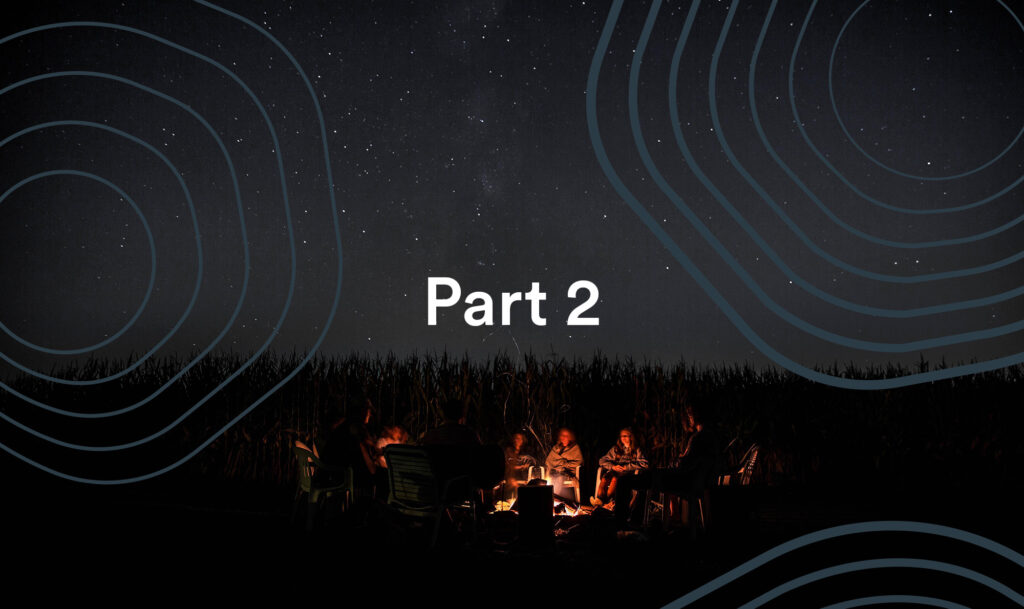From the ever-worsening cost-of-living crisis to the record-breaking weather extremes registering globally, it’s clear that our everyday systems are broken. Top-down solutions fail to live up to the scale of the challenge. Or, worse, don’t even correctly diagnose it.
Alongside the necessary movements towards redistributed wealth, power and ownership, there is also a need to readdress how we gather the knowledge that drives policy and practice decisions.
Who decides what evidence is needed? How is information gathered? Whose voices are heard?
These questions require us to move beyond methods such as consultation, which seeks to understand public experience and perceptions on limited terms and with no commitment to change.
Traditional methods such as consultation seek to understand public experience and perceptions on limited terms and with no commitment to change.
Instead, we need to move towards a more participatory approach to our research practice that genuinely shifts power from researchers outwards.
Many such methods are taking off across the sector. They range from peer-research approaches (that give those with lived experience of the issues being explored support to take on research roles themselves) to deliberative approaches, such as citizens assemblies and juries.
These methods challenge the process of research to readdress how people traditionally viewed as ‘participants’ can take on a fuller and more meaningful role in the design, delivery, conclusions and subsequent actions from research.
Working in this way – where relevant and appropriate – is seen to be an important part of the shift towards more equitable, inclusive and regenerative futures.
This more participatory practice learns from distributed decision-making in wider spaces, thinking about the roles of people and places in decisions that affect them.
In the UK, collectives such as People’s Powerhouse and We’re Right Here – and many more around the world, including The Democracy Collaborative – are exploring how we might democratise decision-making and action beyond our current modes of civic engagement. Avenues being investigated are, respectively, geographical redistribution, community power, and a democratic economy framing.
During my time as Head of Research at the RSA, we explored how we might do this, too. We began by drawing up a set of principles.
What principles might guide us toward meaningful participation?
Our emerging practice, informed by learnings from a host of organisations delivering participatory work, drew on three active decisions to broaden the scope of our work.
1. Start big
We experimented with taking our research back to basics. Rather than starting with hyper-specific research questions, by which point much of the research focus has already been set in motion, we started more openly and were led by what is important to participants in their lives.
For example, when engaging in a piece of work with a neighbourhood called Nechells in Birmingham, we started by asking: “what do we need from our home and neighbourhood, now and in the future, for everyone in Nechells to live a good life?”.
Engaging in deliberation and prioritisation from this broad starting point allowed us to explore what really makes a difference to residents’ lives. Around this, we could then form recommendations that started from their needs, not some external concept of what is needed.
2. Engage openly
For too long it’s been accepted that some people are ‘hard to reach’. Tolerating this gap leaves important perspectives underrepresented in research and policy work. It takes time and consideration to engage openly, but doing this well means that input into research is much more representative.
Practically, this might include more ambitious recruitment processes and timelines. It could involve inviting people randomly to a particular place, so as to engage those who might not usually be part of conversations about where they live. It could entail setting up attractive physical spaces to recruit participants. Or it could involve actively working with local community organisations, schools or services to include specific groups.
I’ve been inspired by the work of Civic Square, also in Birmingham, where their creative and inviting approach to working locally is inspiring new practice.
3. Rebalance power
Within shared spaces, any power imbalances, if left unchecked, can shape the tone and content of research. When broadening the scope of research, it is critical that spaces created for participation strive for equity among participants.
This might mean thinking about the role of the researcher. It may involve looking at the relationship between participants. Or it could scrutinise dynamics among all stakeholders, particularly if they are decision-makers or in a position of authority.
Each act of participation will need its own approach to facilitation. But at a broader level, it is critical to think about:
- how to encourage people to speak openly and early;
- how to create a range of ways people can participate; and
- how to maximise the value of the spaces participation happens within (for example, how we can most effectively use online spaces).
What are we learning?
These principles can be applied to work that spans a range of different issues and contexts. At the RSA, we applied them to deliberative exercises, advisory group models, and peer-research approaches piloting innovative new approaches to public engagement and dialogue.
Lessons in how to get this right come through thick and fast. Every piece of research will need its own bespoke approach. But in all instances, there are practical underpinnings that can help to remove barriers to participation that might have traditionally limited engagement.
Pay your participants
At the RSA, we would always pay our participants. This reflects that we value people’s time, and helps to ensure that everyone involved is in a more equitable position of being paid for their input.
Mix up your modes of engagement
Plan for a variety of modes of engagement, from individual meetings, online spaces, in-person sessions, and small and large group work. This will allow people to work in a way they are comfortable with.
It will also help create an environment of imagination and creativity, which can inspire people to think about solutions – what results they would like to see from the work they are part of.
Invest in time
Make sure the amount of time that people are involved in the work allows for the process of understanding the research. In group settings, it is also essential to build in time to allow relationships to form.
Working in research, especially with partners, can create time pressures. But taking time with participants early on is an investment in the work as a whole.
Image credit: Wilhelm Gunkel on Unsplash.
Hannah is former Head of Research at the RSA and previously co-led the organisation’s People and Place programme. She is an experienced quantitative, qualitative and participatory researcher with a focus on economic security, wellbeing, housing and young people’s advocacy. She is now Head of Insights at Turn2Us.





